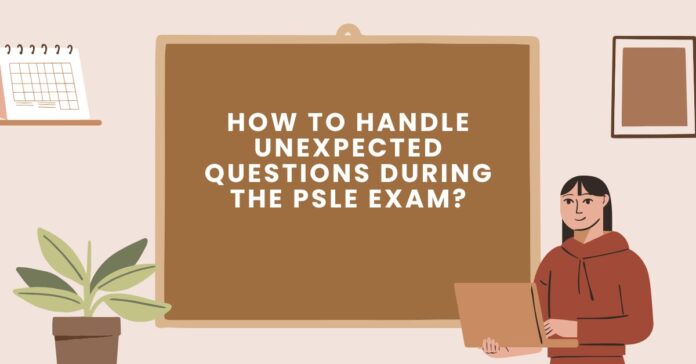The PSLE (Primary School Leaving Examination) is a significant milestone in a student’s academic journey. While preparation is key, even the most diligent students can face unexpected questions during the exam. These questions might seem daunting, but with the right strategies, they can be tackled confidently. This blog will guide students on how to handle such PSLE surprises effectively and turn challenges into opportunities.
Stay Calm and Focused
The first rule when encountering an unexpected question is to stay calm. Panicking will only cloud your judgment and make it harder to think clearly. Take a deep breath, focus on the question, and remind yourself that it is possible to work through it. A composed mind is more likely to find logical solutions.
Read the Question Carefully
Unexpected questions can often appear more complicated than they actually are. Take the time to read the question thoroughly. Look for keywords and phrases that indicate what the question is asking. Break it into smaller parts if necessary. Understanding the question is the first step toward finding the answer.
Apply What You Know
When faced with a tricky question, rely on your existing knowledge. Think about related topics you have studied. Often, unexpected questions test your ability to apply concepts in a new way. Ask yourself: “Have I seen something similar before?” or “Which part of the syllabus does this relate to?”
Manage Your Time Wisely
Spending too much time on a single question can jeopardize your ability to complete the rest of the paper. If a question feels overwhelming, move on to others you are confident about. Once you have answered those, come back to the challenging one with a fresh perspective. Effective time management can make a big difference in the PSLE.
Use Logical Reasoning
Unexpected questions may require logical reasoning more than rote memorization. Look for patterns, eliminate options that seem unlikely, and think critically. For example, in Maths, if you are unsure of the formula to use, try working backward from the answer choices. In English, infer the meaning of unfamiliar words based on context.
Jot Down Your Thoughts
Sometimes, writing out your thoughts can help you piece together the answer. Use rough paper or the margins of your exam paper to jot down ideas, calculations, or sketches. This approach is especially helpful in Science and Maths where you need to visualize concepts or test hypotheses.
Stay Positive
Maintaining a positive attitude during the exam is crucial. Remind yourself that one difficult question does not define your performance. Every student faces challenges in the PSLE, and overcoming them demonstrates resilience. Trust in your preparation and your ability to think on your feet.
Seek Clues in the Paper
Sometimes, other questions in the exam paper might provide clues or hints that can help with the challenging one. Look for related terms, diagrams, or context in other sections of the paper. The answer might just be hiding in plain sight.
Avoid Overthinking
It is easy to overanalyze when faced with an unexpected question. Avoid second-guessing yourself too much. Stick to the basics and trust your instincts. Once you have given your best shot, move on instead of dwelling on it.
Practice for the Unexpected
One of the best ways to prepare for surprises is to practice a variety of questions during your study sessions. Try mock exams, past-year papers, and higher-level questions to build your adaptability. This habit will not only enhance your problem-solving skills but also reduce anxiety during the actual exam.
Conclusion
Unexpected questions in the PSLE can feel intimidating, but with the right mindset and strategies, they are manageable. Stay calm, analyze the question, and apply logical reasoning to navigate through it. Remember that preparation includes not just knowing the content but also developing the confidence to handle surprises. By staying composed and trusting in your abilities, you can turn even the toughest questions into opportunities to shine.
